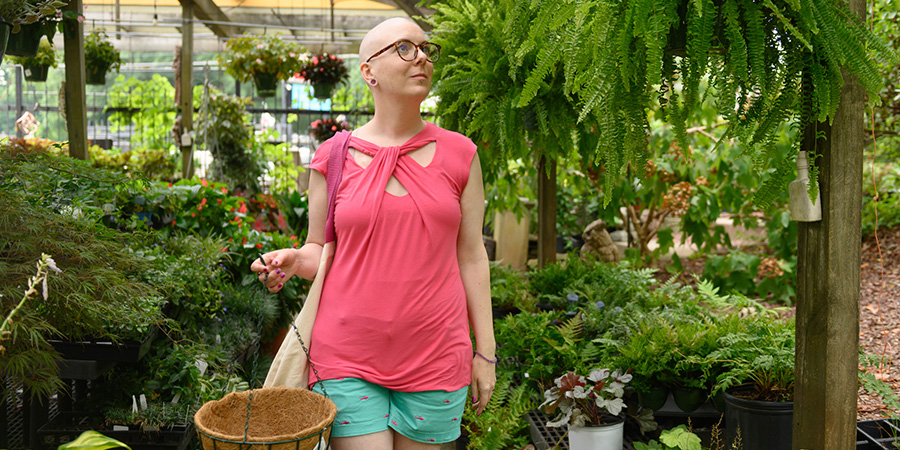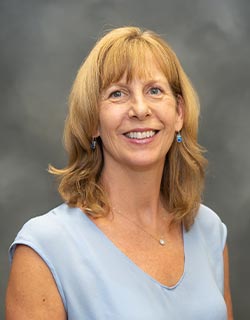COVID-19 Complicates the Already Difficult Process of Treating Cancer
June 30, 2020
COVID-19 has had a significant impact on the lives of people everywhere. While society adjusts to the new normal, certain groups must take extra precautions during even the most routine activities like a doctor's appointment. One such group is cancer survivors.

Felicity Kirby, RN, BSN, OCN
Survivorship Coordinator
Felicity Kirby, R.N., OCN, is a Survivorship Nurse Coordinator at GBMC's Sandra and Malcolm Berman Cancer Institute. She explains, "For the most part those people fall under an immunocompromised group. It indicates an increased risk of being able to fight the infection."
The Survivorship Program at GBMC's Sandra and Malcolm Berman Cancer Institute helps bridge the gap between treating cancer and resuming life afterward. The program offers emotional and physical support for the transition between treatment and normal life, but the COVID-19 pandemic and subsequent shelter-in-place mandates brought about unfamiliar hurdles for both patients and their care teams.
Kirby says navigating cancer care for patients during the initial shutdown was a challenge because cancer isn't something that can be put on hold.
"Cancer is a serious condition that requires treatment. We had to evaluate whether the patient could wait or not. There was a lot of assessment over different scenarios behind the scenes," Kirby says.
According to Kirby, around 70% of patients still came to their appointments in-person. Despite some anxiety, the group was in good spirits.
"The patients who have come in are so courageous and good-natured. I've been so amazed by their resilience."
Kirby says staff is available to answer questions over the phone if patients feel anxious about visiting the office.
"Cancer care is incredibly complicated to start with. Imagine trying to navigate it without being able to interact in person with your health care team."
Moving forward, Kirby has some advice for both cancer survivors and the general public as they navigate the world post-COVID-19. She says cancer survivors should do everything that's recommended for everyone else in their community, especially social distancing and limiting the number of times they leave their home.
For the general public, she says it's less about whether you think you're at risk and more about paying respect to others who may be immunocompromised.
"By wearing your mask and washing your hands, it sends them a message that they are safe and protected," Kirby says.
She also praised the ability of both patients and healthcare professionals to adapt to the new way of doing things.
"It's incredible how inventive people have become as a result of this crisis. It's forced [people] to do things another way, and sometimes that's an improvement in the process."




